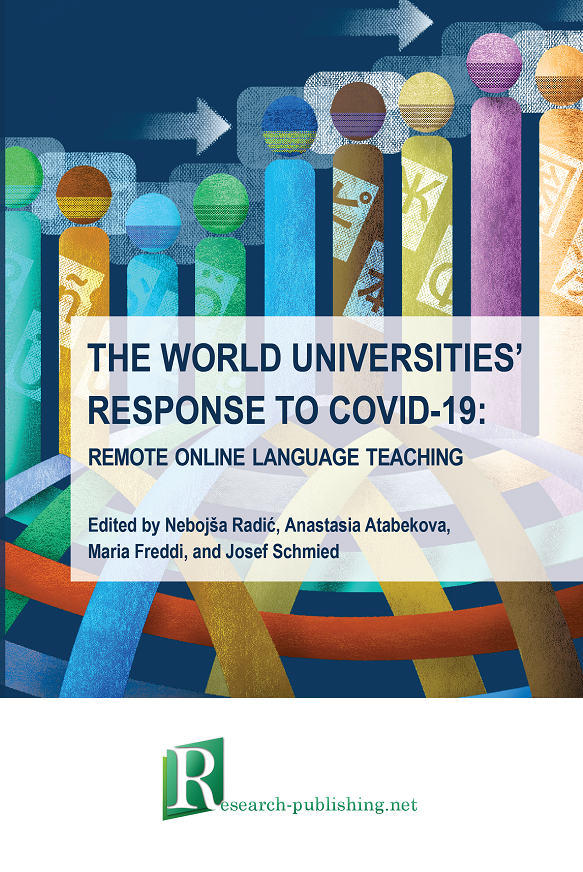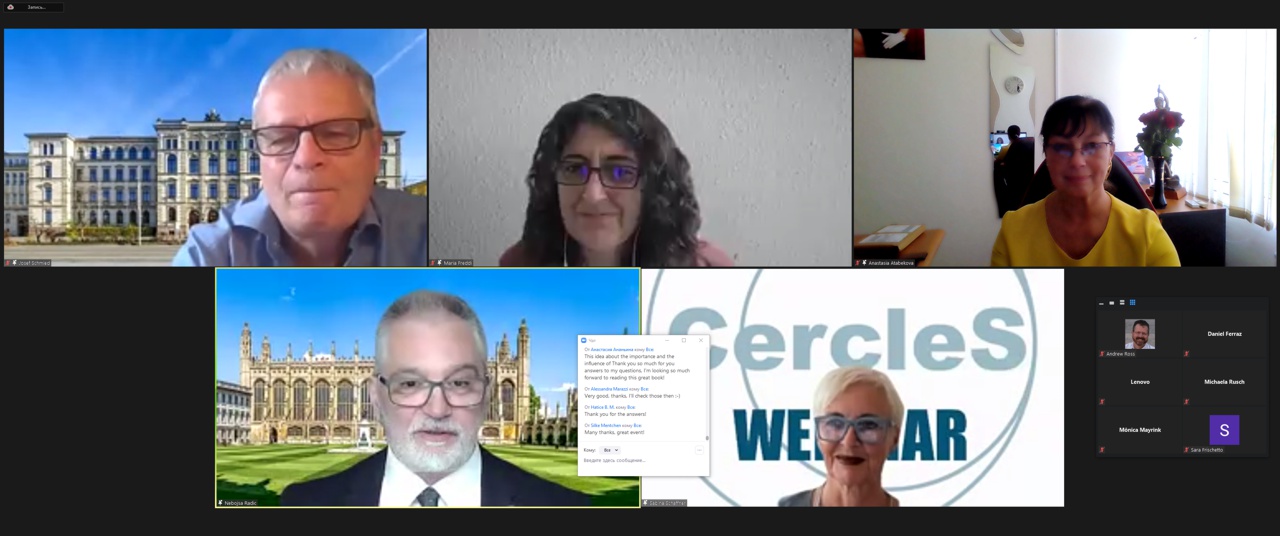Multilingual Education during COVID-19: University Teachers from Several Continents and 18 Countries Explored Common and Specific Features of Remote Training
June 2021 marked the launch of the case-based monograph The world universities’ response to COVID-19: remote online language teaching that compiled 23 research reports on universities’ experiences in foreign language training for language and non-language-students during the 2020 period of the COVID-19 pandemic.
The presentation of the research project findings was hosted by the European Confederation of Language Centers in Higher Education (CercleS). Its distinguished President Dr. Sabina Schaffner kindly agreed to write the foreword and introduce the book at its webinar-mode launch.
The event attracted about 150 participants from over 30 countries, including the RUDN language teachers from different departments, institutes, and faculties.
The research project was initiated, and the monograph publication was co-sponsored by the RUDN University and the Cambridge University Language Center.
Doctor Nebojša Radić, the Director of Cambridge University Language Programme (CULP), Professor Anastasia Atabekova, the RUDN Vice Rector for Multilingual Development, Professor Maria Freddi (University of Pavia, Italy), and Professor Josef Schmied (Chemnitz University of Technology, Germany) integrated their efforts as co-editors of the monograph and gatherers of external reviewers’ pool, once a lucky search of the mentioned team for university colleagues passionate for language training resulted in a collection of 23 chapters from 18 countries and several continents, including Africa, Americas, Asia, Europe, and Oceania.
The chapters explore a number of research questions, including decision-making process in shifting to remote on-line teaching; driving forces for change in terms of technology, administration, and pedagogy combination; issues of tailoring traditional pedagogical approaches (interactivity, task-based and learner -centered background) to remote online teaching; on-line remote teaching capacity to cater for the diversity of student body; emerging methodological developments, their common and specific patterns.
RUDN University contributed to the data with the chapter under the title Tracks for Russian university students’ multilingual development within remote education during the pandemic, written by Anastasia Atabekova, Alexander Belousov, and Oleg Yastrebov. The chapter provides a comprehensive picture of Russian higher education prompt response and thoughtful polices during the current pandemic through the lenses of RUDN Law institute language education activities.
The project data reveals a societal relevance of the remote on-line foreign language teaching during the pandemic. The chapters confirm that respective activities contribute to ensuring and fostering academic community resilience and adaptability in case of health-care emergency.
"This collection of case studies is special for several reasons. Firstly, because of the geographical and institutional diversity of the authors, bringing together experiences of teaching under COVID-19 restrictions in the university language classroom from 18 countries and five continents. Secondly, the publication is interesting because of the variety of case studies that testify to different strategies and emphases in dealing with pandemic-related challenges. Finally, the case studies collected strikingly demonstrate the creative responses of language teachers in a variety of contexts to meet the challenges of the pandemic crisis."
Schaffner, S. (2021). Foreword. In N. Radić, А. Atabekova, M. Freddi & J. Schmied (Eds), The world universities’ response to COVID-19: remote online language teaching (pp. xxi-xxii). Research-publishing.net.
"The research data confirms that the global networking of enthusiastic language professionals contributes to awareness raising and dissemination of education promising practices, fosters multilingual and intercultural collaboration among university leadership, administration, faculty, and students at times of the pandemic uncertainty."
The editors, authors, and reviewers address their special appreciation to Doctor Sylvie Thouësny, President and project manager of the publishing house Research-publishing.net (France, Voillans) for her generous support regarding the monograph publication procedure.
Products derived from microalgae represent a cutting-edge development in the field of bioeconomy. The potential of this biological resource was discussed at the international research seminar “Foundations for a Green Sustainable Energy”, part of the BRICS Network University’s thematic group on “Energy”. The event was organized by the Institute of Ecology at RUDN University.
Ambassadors of Russian education and science met at a conference in RUDN University to discuss how they can increase the visibility of Russian universities and research organizations in the world, and attract more international students in Russia.
The international scientific seminar hosted by RUDN Institute of Ecology “Experience of participation in student organizations as a way to form career skills” united scholarship recipients of the International Student Mobility Awards 2024 and Open Doors, along with members of the scientific student society “GreenLab” and the professional student association “Kostyor (Bonfire)” shared their projects focused on environmental protection.

